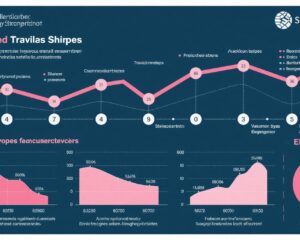Highlights
- Telephone-based weight loss intervention (WLI) yields significant 1-year weight reduction in women with stage II/III HER2-negative breast cancer and BMI ≥27.
- Intervention effective across racial and ethnic subgroups, with greater weight loss in postmenopausal and non-Black/non-Hispanic women.
- Weight loss correlates with adherence to coaching calls, emphasizing the importance of engagement.
- Prior randomized trials suggest telephone counseling is a feasible alternative to in-person sessions, with favorable outcomes on body composition and inflammation markers.
Background
Obesity is a well-established adverse prognostic factor in breast cancer, contributing to increased risks for recurrence, all-cause and cancer-specific mortality, comorbidities such as cardiovascular disease, and reduced quality of life. The global prevalence of overweight and obesity among breast cancer survivors underscores an urgent need for scalable, effective interventions targeting weight management in this population. Historically, weight-loss interventions in breast cancer patients have been constrained by small sample sizes, limited racial and ethnic diversity, and reliance on in-person counseling, which may pose accessibility barriers. Telephone-based interventions offer a promising scalable strategy to overcome these limitations, potentially enabling broader reach and adherence.
Key Content
BWEL Trial: Design and 1-Year Outcomes
The Breast Cancer Weight Loss (BWEL) trial is a multicenter, phase 3 randomized controlled study involving 3180 women with stage II/III human epidermal growth factor receptor (HER2)-negative breast cancer and BMI ≥27. Participants (mean age 53.4 years) were randomized 1:1 to receive either a 2-year telephone-based weight-loss intervention plus standard health education materials (intervention group, n=1591) or health education materials alone (control group, n=1589).
The intervention incorporated:
- Dietary caloric restriction customized to baseline body weight (1200-1800 kcal/day).
- Physical activity escalation starting at 150 minutes per week of moderate intensity for 6 months, progressing to 225 minutes per week thereafter.
- Behavioral coaching delivered via telephone, targeting adherence and lifestyle change.
At the prespecified secondary analysis at 1 year, the intervention group achieved an average weight loss of 4.3 kg (4.7% of baseline body weight), contrasting with a 0.9 kg weight gain (1.0%) in controls, yielding a mean between-group difference of 5.3 kg (P < .001). Clinically significant weight loss (≥5% baseline weight) was observed in 46.5% of the intervention group compared to 14.3% of controls. Moreover, 22.5% in the intervention group lost ≥10% of body weight, versus 5.0% among controls (P < .001 for both comparisons).
Subgroup Effects and Adherence
Subgroup analyses revealed enhanced weight loss among postmenopausal women (mean difference 6.37%) compared to premenopausal women (4.82%). Conversely, Black and Hispanic participants experienced comparatively less weight loss (3.74% and 4.14% respectively) versus other racial/ethnic groups (6.11%). These disparities aligned with differential adherence rates: median coaching calls completed were 26 out of 30 in the overall sample but lower among Black (23) and Hispanic (22) participants, and slightly reduced in premenopausal women (25) compared to postmenopausal counterparts (26). Positive correlation (r=0.57, P=0.02) between call completion and weight loss underscores the pivotal role of engagement.
Complementary Evidence from Prior Studies
LEAN Study (2016): This randomized trial compared telephone versus in-person weight loss counseling in 100 breast cancer survivors (BMI ≥ 25). Both modalities delivered eleven 30-minute sessions over six months focusing on caloric reduction, increased physical activity, and behavioral therapy. Weight loss at six months was similar between in-person (6.4%) and telephone counseling (5.4%), significantly exceeding usual care (2.0%) (P = .004 and .009 respectively). Reduction in systemic inflammation, evidenced by a 30% decrease in C-reactive protein, was observed in combined intervention groups. This supports telephone counseling as an effective, accessible alternative for weight management in breast cancer survivors.
LISA Trial (2014): A multicenter randomized study of 338 postmenopausal women with breast cancer on adjuvant letrozole compared 24-month telephone-based lifestyle intervention with mail-based health information. The intervention aimed for a 500-1000 kcal/day deficit and 150-200 minutes/week moderate-intensity physical activity. Weight loss was significantly greater in the intervention arm at 6 months (5.3%) and 24 months (3.6%) versus controls (0.7% and 0.4%, respectively). Safety outcomes were comparable. Though the primary outcome was disease-free survival, incomplete accrual limited power. Nonetheless, this trial demonstrated durability and safety of telephone interventions for weight control in breast cancer.
Expert Commentary
The BWEL trial represents a landmark in weight management research for breast cancer survivors, demonstrating that a scalable, telephone-based intervention can achieve clinically meaningful weight loss. This strategy addresses key barriers of accessibility inherent to in-person interventions and supports implementation in diverse clinical contexts.
However, the magnitude of weight loss achieved (~4.7%) may be modest relative to the goal to substantially modulate cancer prognosis and comorbidity risks. Whether this level of reduction translates into improved recurrence or survival remains to be seen and requires longer-term follow-up from BWEL and future trials.
Ethnic and racial disparities in weight loss and adherence highlight the need for culturally tailored interventions and reinforcing engagement mechanisms. Postmenopausal women’s greater responsiveness may reflect hormonal milieu or behavioral facilitators that warrant further mechanistic study.
Integrating behavioral insights and leveraging technology-enhanced coaching strategies may augment adherence and outcomes. Future research should evaluate the risk-benefit balance of more intensive weight loss programs and assess impacts on breast cancer-specific endpoints.
Conclusion
Telephone-based weight loss interventions constitute a feasible and effective approach to achieve weight reduction in women with stage II/III breast cancer and overweight/obesity. The BWEL trial establishes evidence for population-wide application, while also underscoring nuanced subgroup responses and adherence challenges. To optimize prognosis and survivorship outcomes, subsequent studies should explore intensified regimens, personalized support, and resultant effects on cancer outcomes.
References
- Ligibel JA, Ballman KV, McCall L, et al. Impact of a Weight Loss Intervention on 1-Year Weight Change in Women With Stage II/III Breast Cancer: Secondary Analysis of the Breast Cancer Weight Loss (BWEL) Trial. JAMA Oncol. 2025 Aug 21. doi:10.1001/jamaoncol.2025.2738. PMID: 40839373.
- Dai J, Feliciano EMC, Shapiro CL, et al. Randomized Trial Comparing Telephone Versus In-Person Weight Loss Counseling on Body Composition and Circulating Biomarkers in Women Treated for Breast Cancer: The LEAN Study. J Clin Oncol. 2016 Mar 1;34(7):669-676. doi: 10.1200/JCO.2015.61.6375. PMID: 26598750.
- Rogers LQ, Hopkins-Price P, Courneya KS, et al. Randomized trial of a telephone-based weight loss intervention in postmenopausal women with breast cancer receiving letrozole: the LISA trial. J Clin Oncol. 2014 Jul 20;32(21):2231-9. doi: 10.1200/JCO.2013.53.1517. PMID: 24934783.



